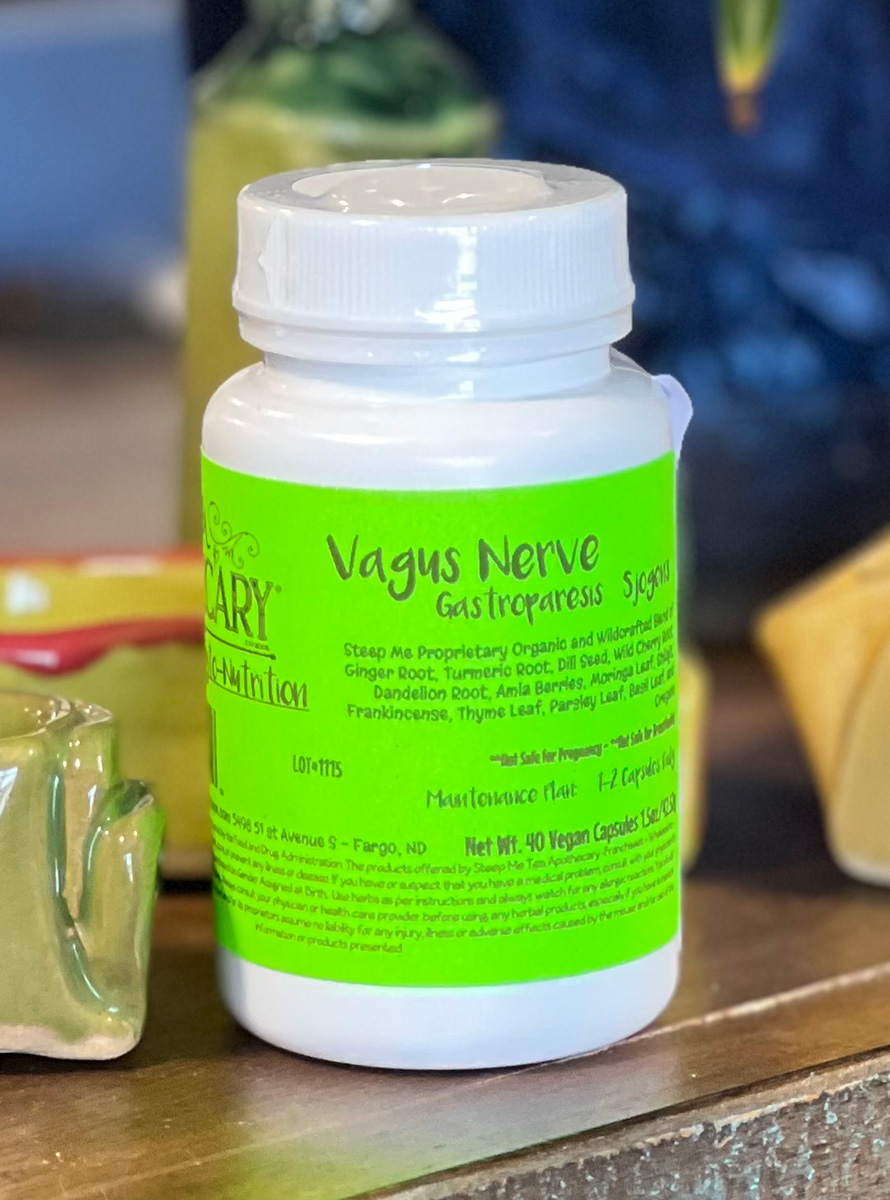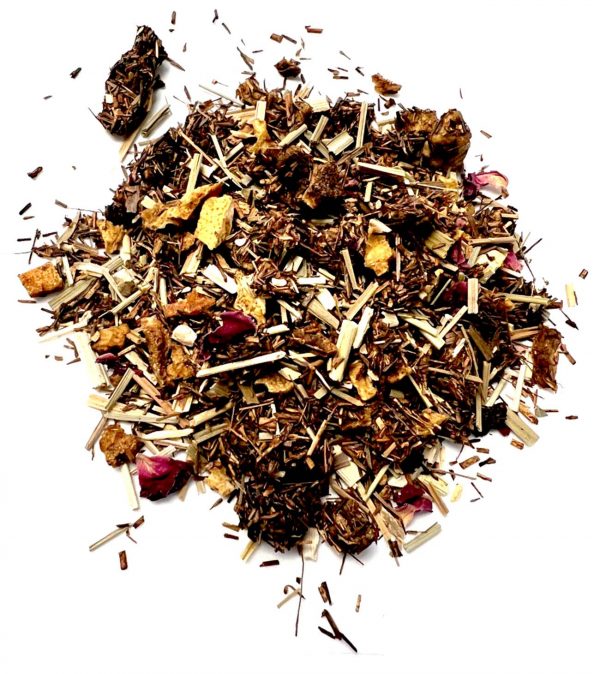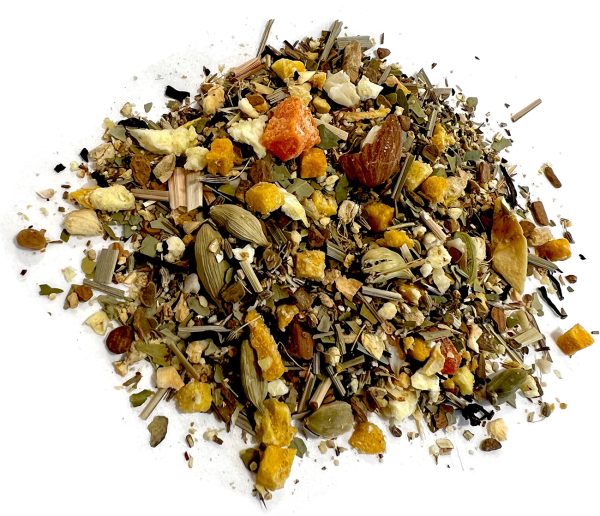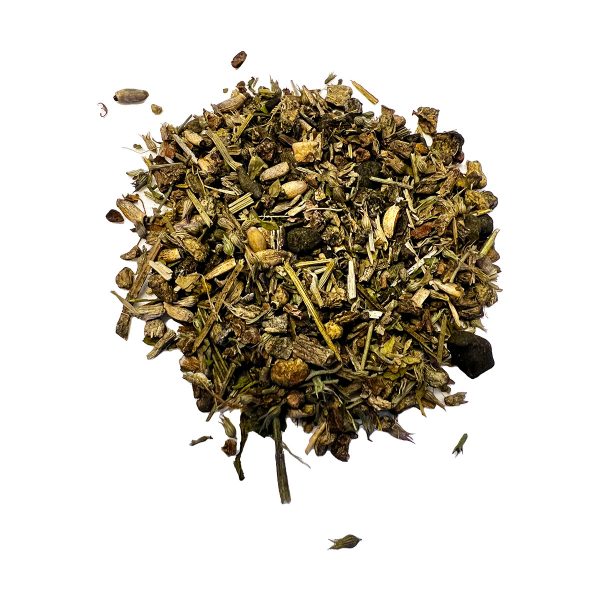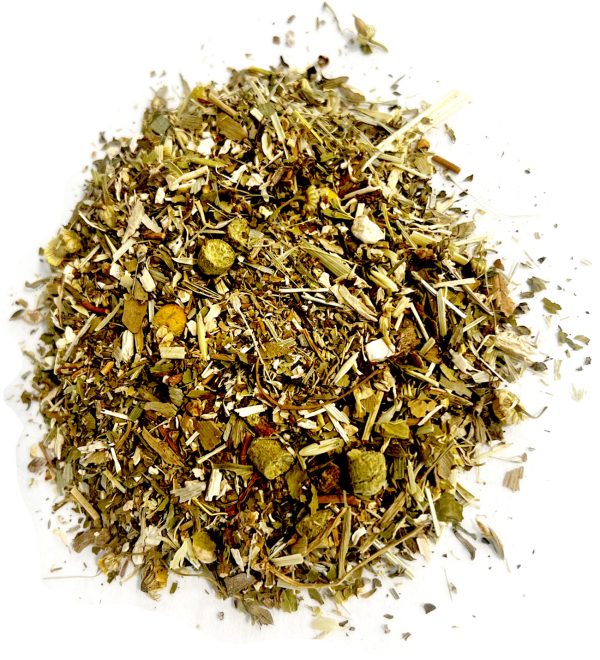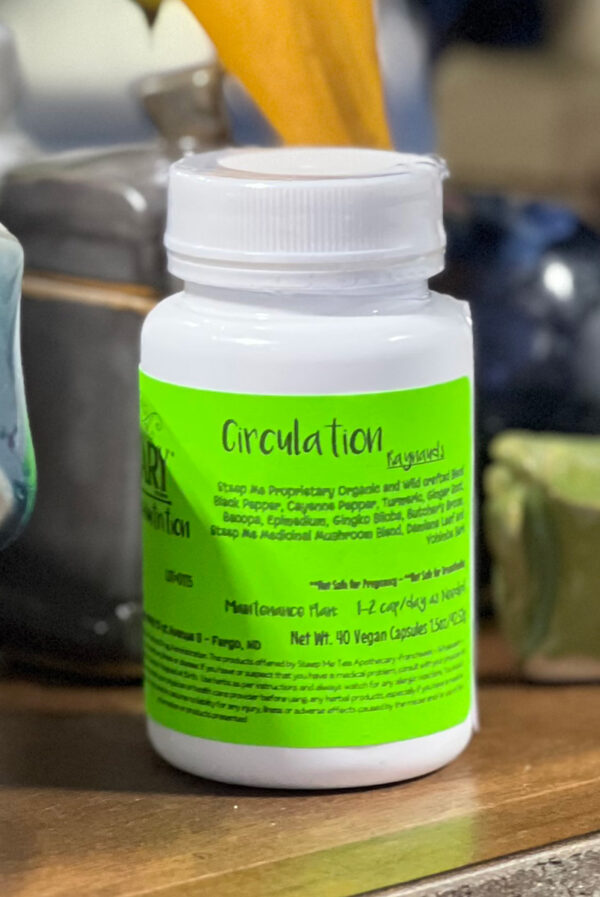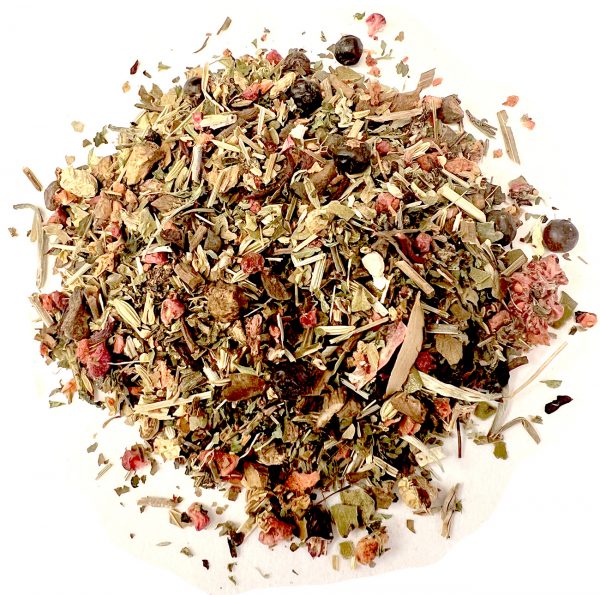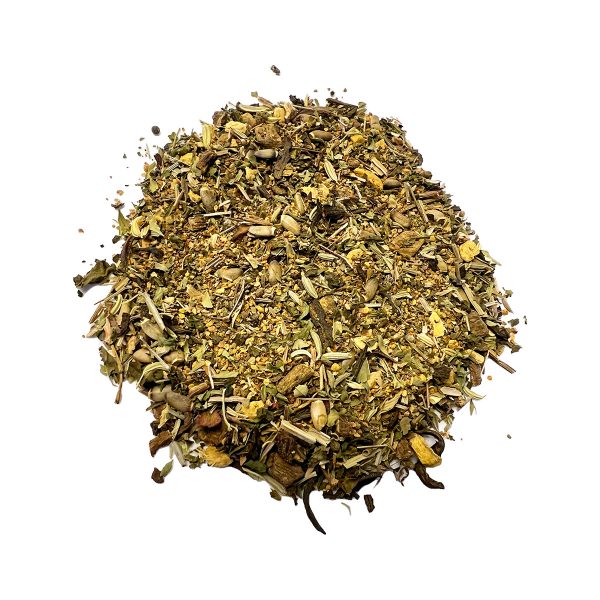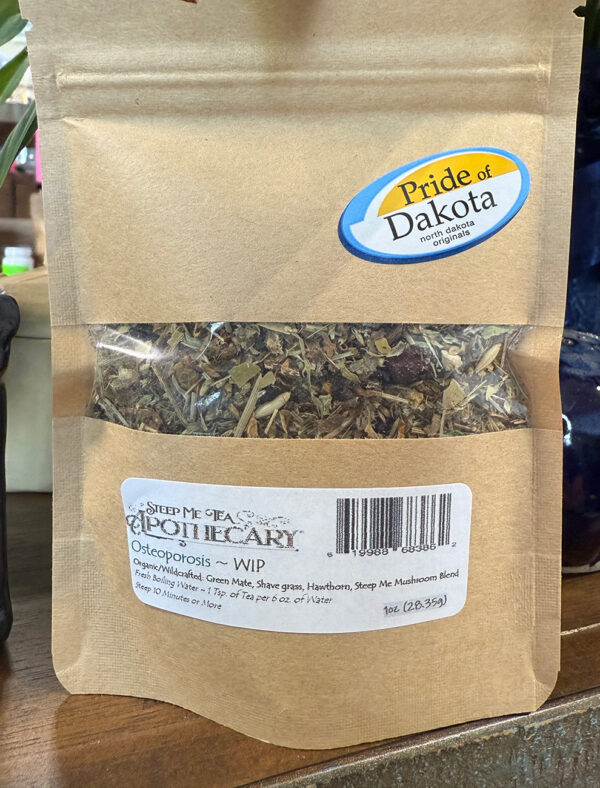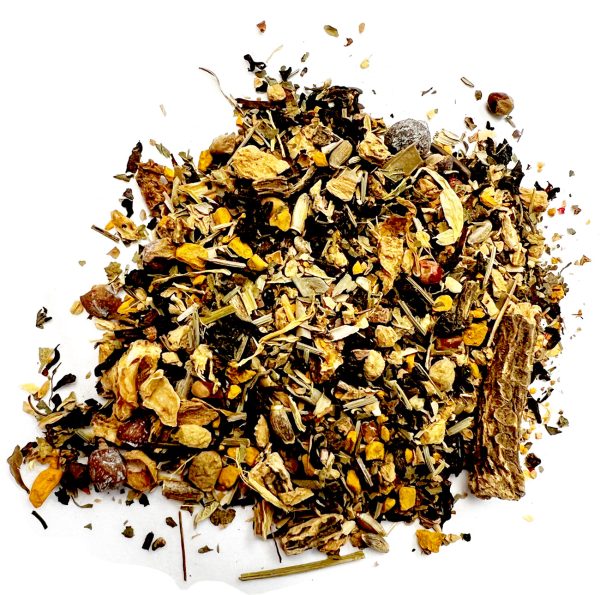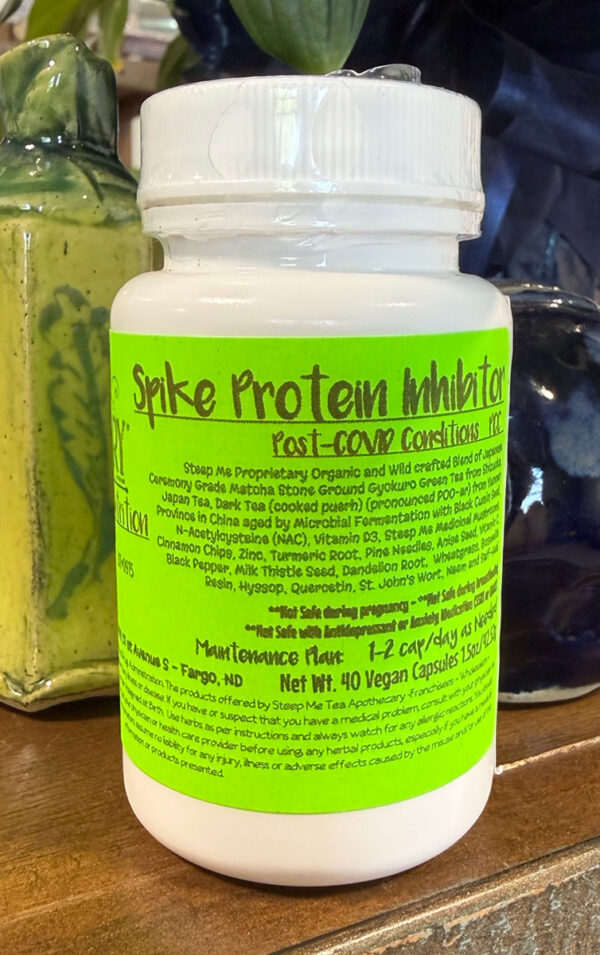With over 400 different kinds of loose tea that will exceed all tea lover’s expectations. You’re sure to find something you will love! All handcrafted by us in North Dakota.
Vagus Nerve ~ Gastroparesis ~ Sjogren’s Capsules
$58.95
This blend was built to help assist your body’s in helping heal by improving Gut health, manage stress and help nourish the Vagus Nerve in order to heal.
SKU:
Vagus Nerve ~ Gastroparesis ~ Sjogren’s Capsules
Category: Capsules
Tags: All natural, Handcrafted
Description
Blender’s Notes Vagus Nerve ~ Gastroparesis ~ Sjogren’s Capsules:
Steep Me Self Help combinations are a great way to get health benefits outside of the standard tea leaf. The blends in our Work in Progress section are still in their testing phases…. We would love for you to try the blends and give us feedback on how you felt they were working. All our teas go through a thorough testing phase to ensure we are finding success in the combination. Once we have 100 people or more evaluating the blend and we are starting to see the same results in 60 or more of the testers…these blends will move to the Self-Help section.
This blend was built to help assist your body in helping heal by improving Gut health, managing stress, and helping nourish the Vagus Nerve to heal. The Vagus nerve, also known as the tenth cranial nerve or cranial nerve X, is the longest nerve of the autonomic nervous system which controls involuntary body functions. The vagus nerve is tasked with regulating critical body functions such as heart rate, blood pressure, breathing, and digestion. The malfunctioning of the vagus nerve can undermine these and other involuntary body functions, referred to as autonomic dysfunction. It is also a huge part of the balance between the sympathetic and parasympathetic pathways of our autonomic nervous system. There are many conditions that can damage the vagus nerve, including alcoholism, diabetes, benign or cancerous tumors, and physical trauma.3 On the other side, there are numerous conditions caused or influenced by vagus nerve dysfunction, the underlying cause of which may be unknown. Problems with the vagus nerve referred to as vagopathies can cause a variety of symptoms depending on which part of the nerve is affected. Among the conditions associated with vagopathy are Acid reflux: This is when stomach acids backflow into the esophagus (feeding tube), including a chronic form of the condition known as gastroesophageal reflux disease (GERD). Cardiac arrhythmia: This is an irregular heartbeat. It may also include bradycardia (an abnormally slowed heartbeat), tachycardia (an abnormally rapid heartbeat), and palpitations (skipped heartbeat). Dysphagia: This is difficulty swallowing foods or liquids. Gastroparesis: This is a digestive disorder in which food does not move properly from the stomach into the intestines, causing abdominal pain and bloating. Laryngopathy: This is the dysfunction of the larynx (voice box) which can lead to hoarseness and speech problems. Orthostatic hypotension: This is dizziness or fainting caused by a rapid drop in blood pressure while standing or rising. Singultus: This is another name for hiccups. Vasovagal syncope: This is fainting caused by a sudden and strong emotional response, such as being frightened or seeing blood. Other symptoms include ringing in the ears, tunnel vision, and nausea. Vagus Nerve: What It Is, Function, Location & Conditions
In this blend we included Ginger is a great herb to help with speeding up gastric emptying and is a popular anti-inflammatory. It is very soothing for the digestive tract, which can become inflamed when the vagus nerve is not functioning optimally. Ginger is helpful in reducing nausea and vomiting, including nausea after surgery and during pregnancy. We also included Turmeric because it activates the Vagus Nerve and promotes the release of ACh which is an anti-inflammatory parasympathetic neurotransmitter. We added Dill Seed because it has nutrients which are important to nerve health, such as calcium, manganese, folate, riboflavin, and vitamins A, C, and B6 are contained within this ancient herb with a long history of use in calming ailments. Another herb we added is Wild Cherry Bark. It has been used to treat coughs and other respiratory complaints. It has excellent natural expectorant qualities meaning that the bark can help to loosen up phlegm or mucus from the respiratory system. It might help calm down the nerves and even treat some of the symptoms of anxiety like indigestion and sleeplessness, to improve digestive problems. It is sometimes recommended to help treat common but often troublesome complaints like diarrhea, bloating, gas, and indigestion. Dandelion Root and Amla Berries are a bitter herb which can trigger receptors on the back of the tongue, which activates a nerve called the vagus nerve — which kicks the digestive system into gear. This nerve travels all the way down to the digestive tract where it is used to stimulate secretions from the stomach, liver, pancreas, and small intestines. Moringa Leaf has a potential calming effect on the central nervous system, anti-inflammatory properties and Indian Jalap has long been used in India as a cathartic, which is a drug that induces active movement of the bowel and Shilajit is an adaptogen, a class of substances said to boost the body’s resistance to stress, boost libido, and increase energy and manage diabetes.
With these herbs we also included Frankincense, which is good at improving vagal tone in the respiratory area although they will also work on other areas. The pines and spruce are particularly valuable for relaxing and expanding the lungs but also help balance the neuro-endocrine complex (acting on the HPA axis) and thereby improve vagal tone. Thyme contains apigenin, a plant flavonoid that reduces cytokine release from mast cells and helps decrease inflammation. Volatile oils in thyme include carvacolo, borneol, geraniol, and thymol, with powerful antiseptic, antibacterial, antimicrobial properties that have also been shown to be effective against a host of different bacteria and fungi, including Staphylococcus aureus and E. coli. Parsley is rich in apigenin, a flavonoid that reduces inflammation by reducing the production of TNF-alpha, IL-8, IL-6, and COX-2. It is commonly thought to aid in detoxification, your blood purification system, and often touted to have the ability to escort mercury out of your body. Rosemary because it has polyphenols and terpenes in rosemary are great weapons against inflammation because they are naturally occurring antioxidants. They have the power to neutralize free radicals in the blood, which shuts down the inflammatory response. As a result, veins and arteries are less likely to become narrowed or clogged, and may lessen pain, swelling, and stiffness associated with peripheral neuropathy. Basil because it inhibits the enzymes that produce inflammation. In fact, the same enzymes targeted by nonsteroidal anti-inflammatory pain relievers. Basil also provides vitamin A, which contains beta-carotene, powerful antioxidants that protect cell linings in many structures of your body from free radical damage, including blood vessels that nourish your nerves. Potentially the most beneficial aspect of this herb for nerve damage comes from its content of flavonoids, other powerful antioxidants. Finally, we added Oregano because it contains rosmarinic acid, a mast cell stabilizer that is anti-inflammatory. It is also heralded for its ability to reduce cytokine release, for a double punch to chronic inflammation. Oregano is rich in antioxidants, which are compounds that help fight damage from harmful free radicals in the body. Rich in folate, this universal herb helps form RNA and DNA building blocks for cellular regeneration. From this complex combination we are stimulating the Vagus nerve, soothing, and de-stressing the system while allowing the digestive system to be a bit more functional to help digest food properly.
If you have any questions, please reach out to us. We would love to help! This blend has been successful already but wants to make sure we see enough results to ensure it has positive effects. Please let us know how you are feeling or if you have any testing done – your results – we would love to keep track of our other clients. Please send all updates to [email protected]. Thanks for trying.
NOTE: “This/these claim(s) have/have not been evaluated by the Food and Drug Administration. This product is not intended to diagnose, treat, cure or prevent any disease.”
Features Vagus Nerve ~ Gastroparesis ~ Sjogren’s Capsules:
- Ready to Go
- Lots of individual flavor based on the ingredients.
- All Wildcrafted Herbs
- All Organic where Wildcrafted is not available.
- Sample Contains 40 Capsules
- Active Plan – 1~2 Capsules a Day as Needed
- Caffeine: None
Ingredients: Steep Me Proprietary Organic and Wildcrafted Blend of Ginger Root, Turmeric Root, Dill Seed, Wild Cherry Root, Dandelion Root, Amla Berries, Moringa Leaf, Shilajit, Frankincense, Thyme Leaf, Parsley Leaf, Basil Leaf, and Oregano
Alternatively, try our Neuropathy Phyto~Nutrition Capsules OR Neuromuscular Health Phyto~Nutrition Tea OR VitaliTEA Phyto~Nutrition Ingestible OR VitaliTea Phyto~Nutrition Capsules
Not Safe for Pregnancy
Not Safe for Breastfeeding
NOTE: This/these claim(s) have/have not been evaluated by the Food and Drug Administration. The products offered by Steep Me Tea Apothecary -Franchisees – Wholesalers – Influencers or SteepMe.com are not intended to treat, cure, or prevent any illness or disease. If you have or suspect that you have a medical problem, consult with your physician for diagnosis or treatment. All gender specific blends are based on Gender Assigned at Birth. Use herbs as per instructions and always watch for any allergic reactions. You should always carefully read all product packaging and labels. Always consult your physician or health care provider before using any herbal products, especially if you have a medical problem. Steep Me Tea Apothecary and SteepMe.com and/or its proprietors assume no liability for any injury, illness or adverse effects caused by the misuse and/or use of the information or products presented
NOTE: When using Teas, Capsules, Tinctures and Micro-Nutrition to help with your ailment ~ please remember this is a marathon ~ we recommend an investment of time of at least 6 months to see positive change. Any gender specific blends are based on gender assigned at birth.
Benefits of taking a supplement through capsule form. https://www.realpromise.com/en/what-are-the-advantages-of-capsules/
Additional information
| Weight | 2 oz |
|---|---|
| Size |
Benefits
When talking about the many types of tea, Tisane (Herbal Infusion) or Herbal Tea or Self-Help Tea is really not tea at all. It is made like a tea and all the same items are used to make it, but it does not contain the Camellia Sinensis Plant (unless stated), but is simply roots, flowers, leaves, and fruits put together is a combination that is made just like a tea. With that being said…the health benefits of a Tisane or Herbal teas are different. They can vary depending on the ingredients and combination of herbs so there are no blanket health benefits – just depends on the ingredients. For many, the best part of Tisane or Herbal Tea or Self-Help Tea is the fact that it is caffeine free naturally. Of course there are herbs that can be added to change that. The most popular Herbal teas include Chamomile, Peppermint, Spearmint, and any combination of fruit blends or infusions. Our Self-Help Teas are simply supplemental herbal combinations to aid with an occasional ailment specific to what may be happening in your life. The teas are built to work and are not build with any specific flavorings. The blends are tested to the minimum requirements laid out by Steep Me A Cup of Tea. The taste provided is natural to the herbs present in the blend. No flavorings added. This/these claim(s) has/have not been evaluated by the Food and Drug Administration. The products offered by Steep Me Tea Apothecary -Franchisees – Wholesalers – Influencers or SteepMe.com are not intended to treat, cure, or prevent any illness or disease. If you have or suspect that you have a medical problem, consult with your physician for diagnosis or treatment. Use herbs as per instructions and always watch for any allergic reactions. You should always carefully read all product packaging and labels. Always consult your physician or health care provider before using any herbal products, especially if you have a medical problem. Steep Me Tea Apothecary and SteepMe.com and/or its proprietors assume no liability for any injury, illness or adverse effects caused by the misuse and/or use of the information or products presented.
Tisane or Herbal Tea or Self-Help Tea
Related products
Alcohol – Drug Detox
From: $18.00
The blend was built to help the body detox Alcohol and Drug use and the symptoms that can occur thru detox.
Select options
This product has multiple variants. The options may be chosen on the product page
Anxious Brain ~~ GRAS Certified Ingredients
From: $18.00
Blender’s Notes Anxious Brain ~~ GRAS Certified Ingredients: Steep Me Self-Help combinations are a wonderful way to get health benefits
Select options
This product has multiple variants. The options may be chosen on the product page
Circulation ~ Raynaud’s
From: $70.95
Select options
This product has multiple variants. The options may be chosen on the product page
Edema
From: $20.00
The blend was built specifically to help built to help with increased and trapped swelling of the body – especially hands, feet, calves, and ankles.
Select options
This product has multiple variants. The options may be chosen on the product page
Gout – WIP
From: $19.00
The blend was built to help the body filter out the toxins from Gout and help with pain management and reduce Uric Acid.
Select options
This product has multiple variants. The options may be chosen on the product page
Osteoporosis ~ WIP
From: $16.00
The blend was built to help build back some of the density in your bones that can be caused by Osteoporosis.
Select options
This product has multiple variants. The options may be chosen on the product page
Pancreatic
From: $16.00
The blend was built specifically to help the Pancreases to detox, deliver hormones and ease the symptoms of inflammation or Pancreatitis. Your pancreas, a small organ rarely thought of until it causes problems, is vital for your digestive system as well as the endocrine process.
Select options
This product has multiple variants. The options may be chosen on the product page
Spike Protein Inhibitor ~ Post-COVID Conditions (PCCs)
$94.95

